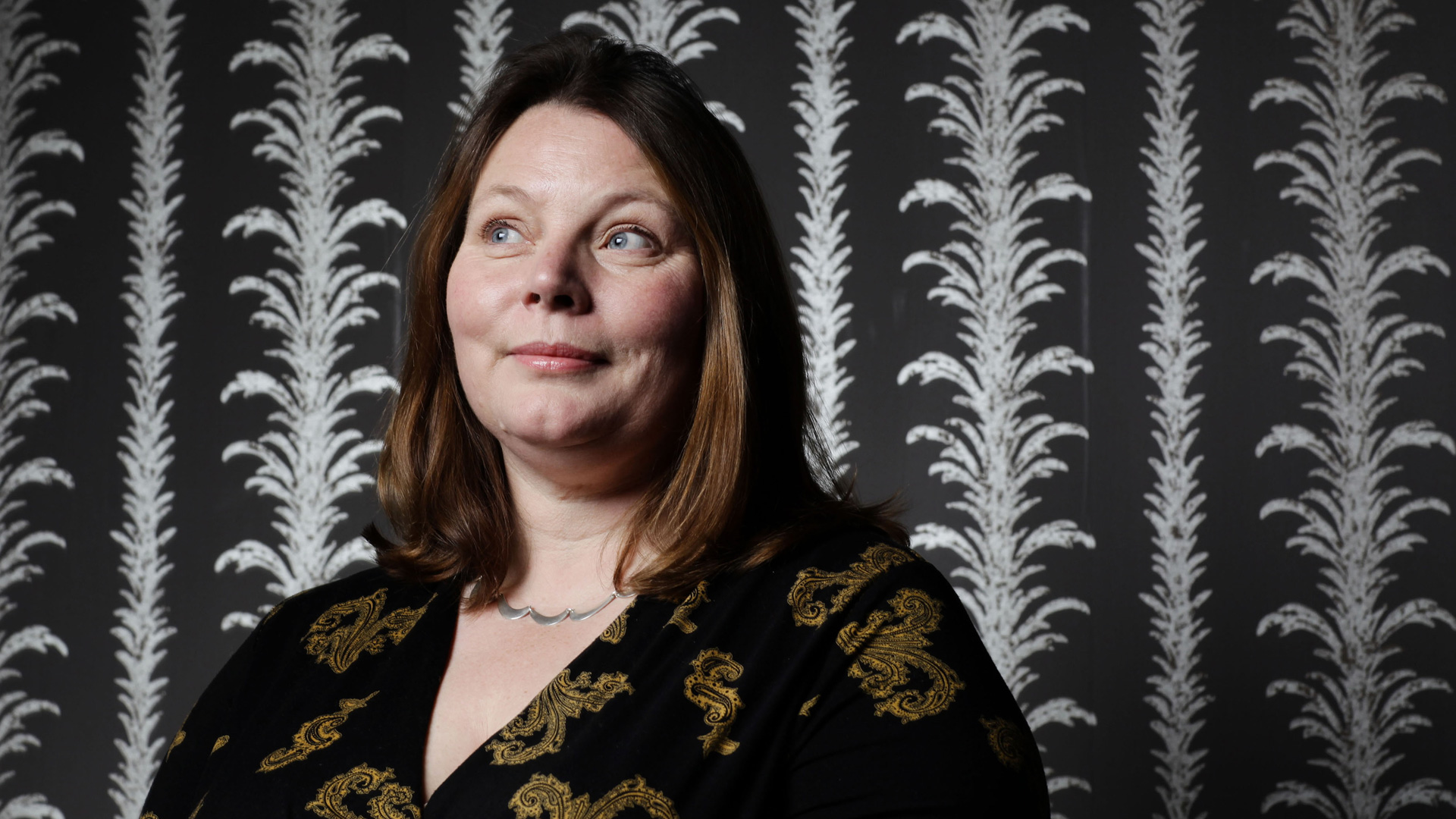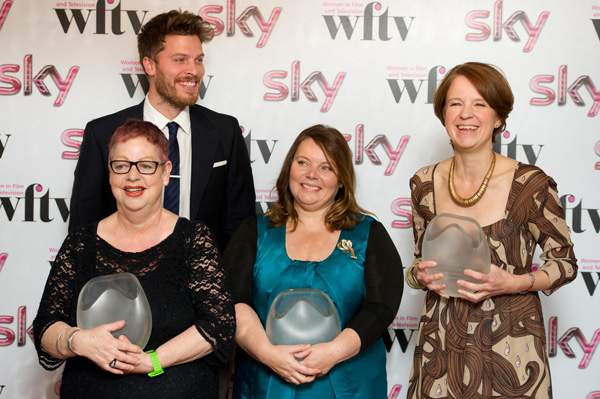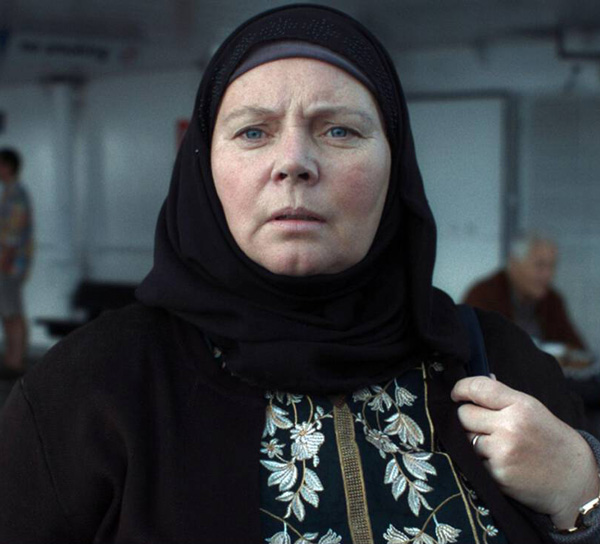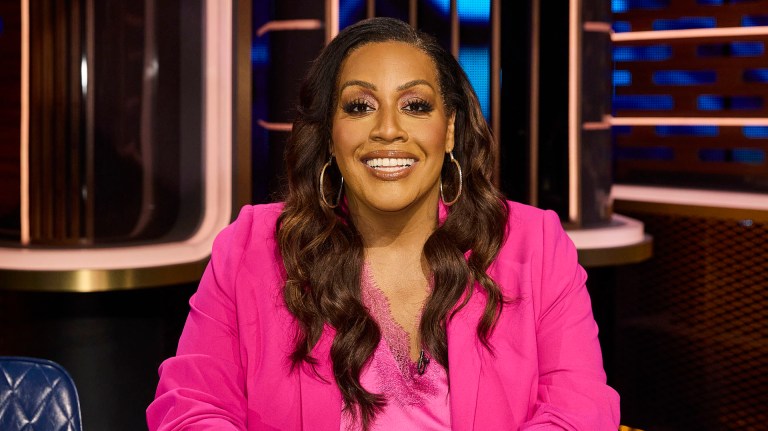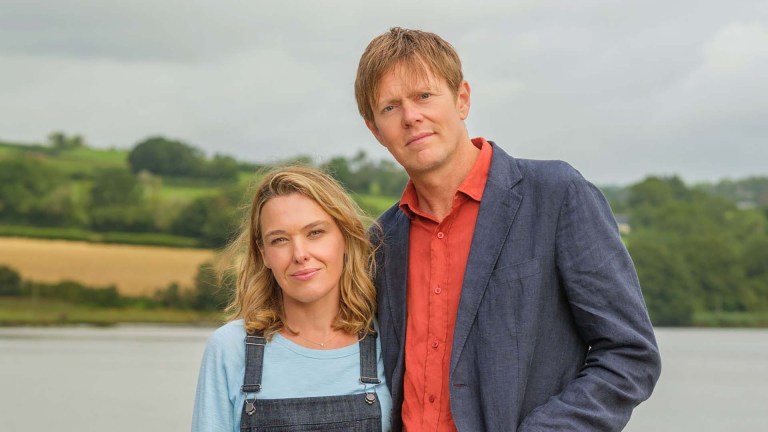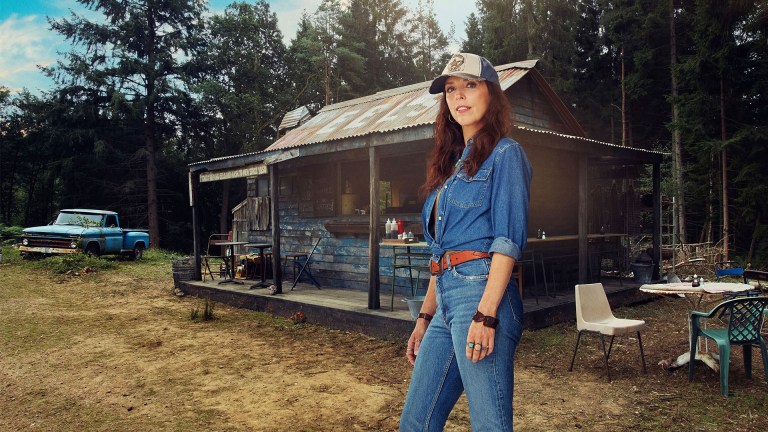Seven years in a role can pigeon-hole an actor, and Joanna Scanlon’s turn as the apathetic civil servant Terri Coverley in all four series of Whitehall comedy The Thick of It risked exactly that. Ministers would come and go but Terri was a constant, doing just enough to keep her job and make sure she was home by 6pm.
Early on in the series, Terri is described as someone so incapable of thinking outside the box that “she’s built a box inside the actual box and she’s doing her thinking inside that box”. It is testament to her talent, like with all good actors, that this description is wildly inaccurate of Scanlon herself.
Now back with a new film in After Love, she tells The Big Issue about growing up at boarding school before throwing herself headlong into adult life. It didn’t all go to plan, as most things don’t.
At 16 I was at a very pleasant girls’ boarding school in North Wales. I enjoyed that life, I had bags of fabulous friends – I’ve enjoyed friendship all through my life. Until I was 16 I always took it upon myself to stand up for what I saw as injustices, as very, very small as they were at that school. I would just break every possible rule I could, in order to get into trouble and get the punishment. You had to stand in a place called the Death Trap, which was just a glass corridor, so everybody could see you had been naughty. It was a sort of shaming process, but I took it as a badge of honour. I was very, very naughty. Then when I got to 16, one day just I woke up and thought, I can’t be bothered to break a rule today. It’s too much like hard work. So I gave up being a naughty schoolgirl. And two years later I was made head girl. I turned from poacher to gamekeeper, on the grounds of exhaustion. I think I still have a rebellious streak, but I’m pretty pragmatic about how to exercise it. I don’t see conformity as a good thing, but I’ve realised it’s really important to get along with as many people as you possibly can and to understand their points of view,
I was very close to my grandparents. They lived very close to us when we were all growing up. I feel my grandparents’ presence in my life all the time, I feel them around me. My grandmother was a great cook. She was very sociable, very homely. She was somebody you could turn to, very warm. And my grandfather was very funny, he had a wonderful sense of humour. He adored his grandchildren, he spent a lot of time playing with us. They were level-headed, they were kind. My grandfather died when I was in my twenties, my grandmother just before I became 30. But the longer they’ve been gone the more connected to them I’ve felt.
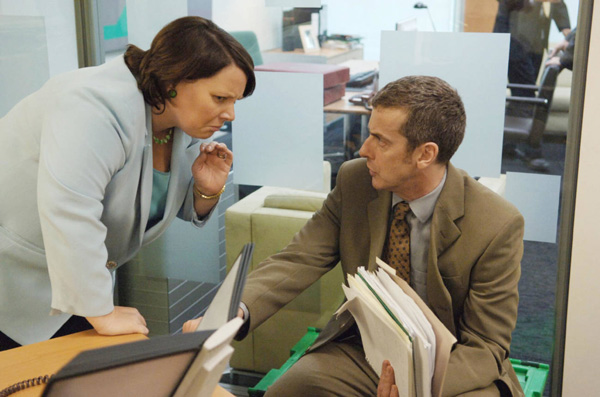
I was always ambitious. To be an actor, that was my dream. I was a little bit torn because there was always a side of me which would have liked to stay in North Wales, and live and work on a farm and have animals. But I felt like I was put on Earth to act. So I worked hard at it. As a child I did plays and pantomimes at school and I did all the associated board exams. It was a huge part of who I was, and I got up every morning and did it every day.
